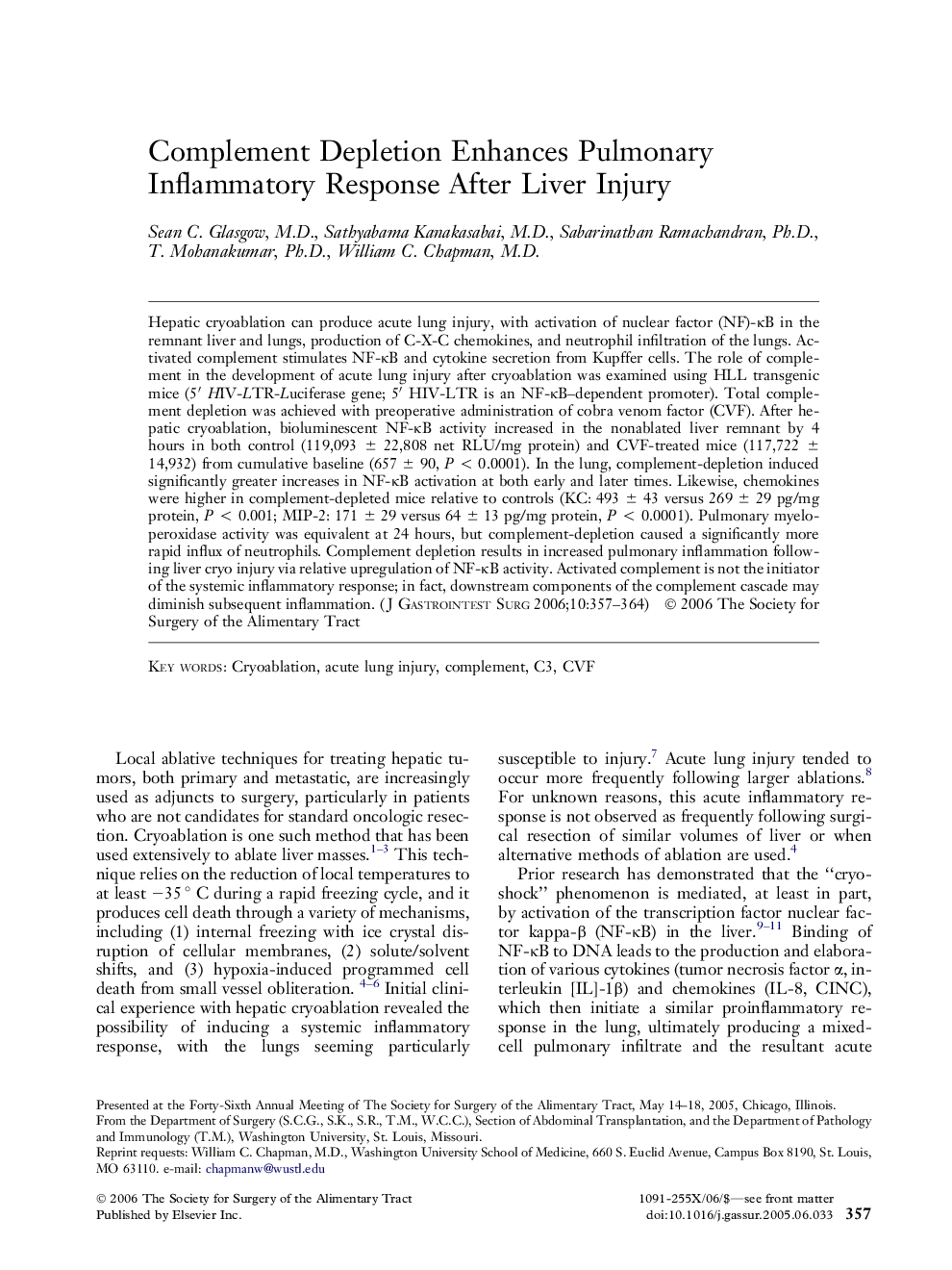| Article ID | Journal | Published Year | Pages | File Type |
|---|---|---|---|---|
| 4297337 | Journal of Gastrointestinal Surgery | 2006 | 8 Pages |
Abstract
Hepatic cryoablation can produce acute lung injury, with activation of nuclear factor (NF)-κB in the remnant liver and lungs, production of C-X-C chemokines, and neutrophil infiltration of the lungs. Activated complement stimulates NF-κB and cytokine secretion from Kupffer cells. The role of complement in the development of acute lung injury after cryoablation was examined using HLL transgenic mice (5ⲠHIV-LTR-Luciferase gene; 5ⲠHIV-LTR is an NF-κB-dependent promoter). Total complement depletion was achieved with preoperative administration of cobra venom factor (CVF). After hepatic cryoablation, bioluminescent NF-κB activity increased in the nonablated liver remnant by 4 hours in both control (119,093 ± 22,808 net RLU/mg protein) and CVF-treated mice (117,722 ± 14,932) from cumulative baseline (657 ± 90, P < 0.0001). In the lung, complement-depletion induced significantly greater increases in NF-κB activation at both early and later times. Likewise, chemokines were higher in complement-depleted mice relative to controls (KC: 493 ± 43 versus 269 ± 29 pg/mg protein, P < 0.001; MIP-2: 171 ± 29 versus 64 ± 13 pg/mg protein, P < 0.0001). Pulmonary myeloperoxidase activity was equivalent at 24 hours, but complement-depletion caused a significantly more rapid influx of neutrophils. Complement depletion results in increased pulmonary inflammation following liver cryo injury via relative upregulation of NF-κB activity. Activated complement is not the initiator of the systemic inflammatory response; in fact, downstream components of the complement cascade may diminish subsequent inflammation.
Related Topics
Health Sciences
Medicine and Dentistry
Surgery
Authors
Sean C. M.D., Sathyabama M.D., Sabarinathan Ph.D., T. Ph.D., William C. M.D.,
